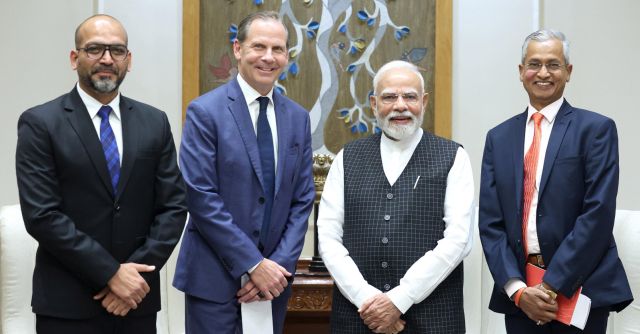
Kyndryl to invest $2.25 billion in India over three years


Kyndryl, an enterprise technology services provider spun off from IBM in 2021, plans to invest $2.25 billion in India over the next three years.
The company said that this investment will focus on developing future talent and establishing an AI lab in Bengaluru.
The commitment includes deepening engagement with the Indian government on artificial intelligence (AI), developing IT talent, and supporting digital training for approximately 200,000 citizens.
The company’s Chairman and CEO Martin Schroeter met with Prime Minister Narendra Modi on August 22, 2025, to discuss the expansion plans. PM Modi welcomed Kyndryl's investment and collaboration with Indian talent to create solutions for both India and global progress.
"We're committed to further developing our people, expanding our technical capabilities and strengthening community partnerships to support growth, innovation and opportunity," Schroeter said in a statement.

Kyndryl India President Lingraju Sawkar said in a statement that this commitment will further support customers in their transformation needs and scaling operations.
The AI Innovation Lab in Bengaluru will advance Kyndryl's AI-powered consulting services by engaging data scientists, consultants, and other professionals. Similar to Kyndryl's AI labs in the U.K. and Singapore, the Bengaluru lab will focus on hiring and training professionals in AI and related technologies.
Kyndryl will also use the lab to lead engagements showcasing AI for governance, critical infrastructure, and cyber resilience, culminating in an AI Impact Summit in February 2026, where Kyndryl will feature its Kyndryl Bridge platform.

The company currently serves numerous organisations across various industries in India. Its growth plan includes modernising essential technology infrastructure for leading enterprises, with a focus on AI, cybersecurity, and hybrid IT modernisation to contribute to India’s digital public infrastructure goals and long-term economic health.
